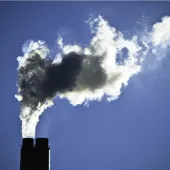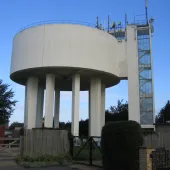Carbon sequestration-cement additive plant approved
Carbon Upcycling Technologies has been granted approval to construct a carbon sequestration-cement additive plant at the CEMEX Rugby Cement Plant in Warwickshire, West Midlands. The plant will transform CO2 emissions from cement kilns into supplementary cementitious materials (SCMs), enhancing concrete performance and reducing CO2 emissions. The scheme is a first in terms of operating the technology as a commercial pilot.
Carbon Upcycling, a waste and carbon utilisation company, has developed a process to extract industrial CO2 byproducts for reuse with recycled materials to improve concrete performance and reduce CO2 emissions.
CEMEX has operated the Rugby Cement Plant since the 1960s and invested a substantial £200 million in an upgrade to the facility in 2000 which included the construction of a clinker production facility. The new scheme, in partnership with Carbon Upcycling, is designed to capture approximately 3,000 tonnes of CO2 at the plant each year, lowering the carbon footprint of cement production by reducing the clinker factor from 90% to 57%.
This latest development is part of CEMEX’s global CO2 Reduction Strategy, introduced to decarbonise the company’s production processes with a target of becoming a net-zero CO2 company by 2050.
The facility will utilise recycled materials such as glass, fly ash, and bypass dust to create low-carbon SCMs with superior strength enabling great cement blending, reducing the amount of clinker in the cement production and promoting a circular economy by upcycling industrial byproducts.
The plant, which will include reactor technology, a dryer unit, conveyors and silos, will have the capacity to process around 120 tonnes of raw materials per day with an anticipated daily output of around 100 tonnes. The primary usage for the output material will be in the off-site blending of cement.
The planning application was submitted in December 2023, and approval was received in May 2024 from Warwickshire County Council. Construction is expected to commence in May 2024 and be completed by October 2024.
The plant will operate continuously, 24 hours a day, with minimal additional heavy goods vehicle traffic. The pilot project has been approved for a temporary period of three years, with decommissioning anticipated in April 2027.
- This information has been provided by BDS, an independent and innovative market research consultancy with over 30 years’ experience in the concrete, mortar, concrete products and cementitious markets. BDS has three strands providing marketing intelligence, insight and reports in addition to bespoke consultancy. For more information visit www.bdsmarketing.co.uk







